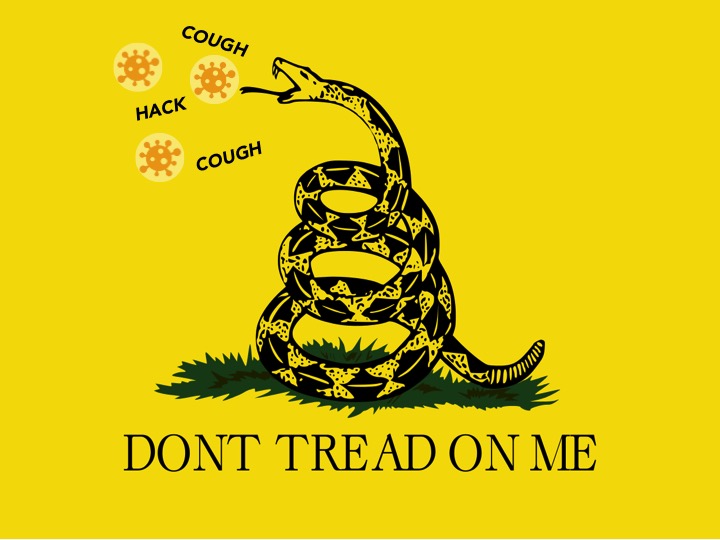Here is the commencement address I would give to a class of students graduating into the most uncertain and trying times in 50 years.
To the Classes of 2020:
You graduate into the most uncertain and trying times our country and world have seen in decades. I don’t need to tell you the challenges your generation faces – an economy in free fall, a society divided by racial, economic and gender inequality–divisions which now have flamed into anger, protest, violence and death, a world in disarray as American global, leadership falters, a global environment in peril. Oh, and just to make things more interesting for you we are going through the most dangerous pandemic in modern history.
It’s against that backdrop that I stand (virtually) before you today to share with you four things:
Be a long-term optimist. Don’t listen to the naysayers who tell you these are the worst of times and things are destined to decline ever more. You enter your place as the next generation of America’s leaders on the cusp of a golden age of humanity.
And chief amongst the naysayers, don’t listen to my people, the baby boomers. (Okay, do listen to me for a few minutes but after that you’ve got the helm.) We Boomers were born on third, thought we hit a double then stole second base. We traded the hope and optimism of our youth for cynicism and solipsism in our maturity, expressing an unprecedented willingness in policy and politics to throw the next generation –your generation (which is, obscenely, our children’s generation)–under a bus of growing debt and declining opportunity, mortgaging the future to maintain the lifestyles our parents fought world wars to provide us and we then took for granted as a God-given right, everyone else be damned.
Listen, instead, to History – for History tells us that, yes, things for mankind do get bad, really bad, yet the story of humanity has been, over years, decades, centuries and millennia, one ultimately of hope, progress, and the never-ending opportunity to dream and realize better days, better lives and better selves. History tells you that, if you are willing to take on the burden and pay the upfront costs to change the world – something my generation was never willing to do – you can and will produce a better world. Indeed, you will produce the best world ever known to humanity.
To achieve these ends, listen to your inner better angels and live the Ethical Life, a life recognizing that community must always come before self and that it is our obligation as moral beings to establish affinities to the broadest, most inclusive concepts of community we can achieve. And that community, ultimately, is the community of Humanity.
And have trust and faith in yourselves—and, more importantly, each other, that you have the ability, the spirit and the destiny to do better for humanity—much better, in fact—than any generation in American and, indeed, world history. Yours can be the Greatest Generation. Yours must be the Greatest Generation. Yours is the Hamilton generation – History has its eyes on you.
Reject the naysayers who preach that the government of we the people cannot help we the people. You know what “politics” means? “Poli” – the many – and “tics” – blood sucking leeches. I pause for your laughter. Except that joke, that politics and the government that comes from it is inherently bad, a joke I’ve heard so many times told by so many basically good people, is perhaps the single most insidious and greatest lie of our lifetime. It is a joke told to you by those that want you to stay out of politics and government so they can control government for their own ends and not the ends of the common good.
“Politics” for the Greeks meant turning the “Poli,” the “Many” into the “Polis”, the “Community.” Politics means E Pluribus Unum – out of many, one. Politics means “We the People.” And “We the People” means Ohana – family–and family means no one is left behind and forgotten.
“We the People,” that is the ideal our founding fathers, for all the their flaws and the failures of their time, understood to be the purpose of our American experiment, a never ending journey in forming an ever more perfect union.
Yes, our country was founded in part on slavery, inequality and repression. But it was also, founded on the ideal that we, each and every generation, can do better and live up to the five words that define us as a people, as a nation: “All Men Are Created Equal.” We are better at living up to this ideal today than 1776, when slavery was an untouchable institution and women had no public voice. We are better at living up to it today than in 1896 when the Supreme Court ruled that segregation was as American as apple pie and the Saturday cross burning and women lacked the vote. We are better at living up to it today than in 1950, when segregation reigned strong and women might have had the vote but were still treated as second class citizens.
Yes, there is always the backlash against every expansion of rights as those who see others gain take it foolishly as their own loss. Yes, sometimes we do take backward steps. Yet for all the crises of inequality and inequity today, an age of that produced Gay rights, climate awareness, #MeToo and #BlackLivesMatter demonstrates that we are still striving to do better. Of course we have not achieved enough. But that is the call to your generation from mine: Do better than us. Doing so is your generation’s moral and ethical obligation and imperative.
Ethics comes from the root Ethos: the characteristic spirit of a culture, era, or community as manifested in its beliefs and aspirations. For the Greek’s the Ethos of the community was the highest moral good which is was that which benefited all members of the community. For the Greeks the citizens who dedicated their lives to the good of their community were the most revered. They lived the life of ethos, of community, of the ethical life.
My generation produced a profoundly unethical—indeed, a post-ethical age, in which Ayn Randian self-interest and selfishness somehow became a virtue a Speaker of the House taught his interns. This post-ethicalism produced a generation of political leaders who mistook winning at any cost for actual leadership, that prioritized individual short-term economic gain at the cost of long term general prosperity, a generation of leaders who forgot there is no “I” in “We the people.” You must change that and restore the ethical life, the life of community before self, to American society.
Don’t listen to the purveyors of pessimism and cynicism who say “throw up your hands you can’t do anything about it so binge watch Netflix and wait for the darkness to fall.” These prophets of doom preach these lines either for profit with a book tour or to make you stay home and get out of their way while they grab more power.
Your generation will be the wealthiest, best educated and longest lived in the history of our species. You are a book bet to live into your 100s – and anyone who doesn’t want to live that long is an idiot because 100 for you will be the new 70. Your children will walk on the surface of alien worlds.
But as the future True Greatest Generation in Human History you, more than any generation before you, must confront the Peter Parker Principle (a principle my generation has largely ignored): With great power comes great responsibility. Don’t accept the world the way my generation is passing it down to you. Change it.
When they tell you to that to save the global environment you’ll have to live less well than previous generations, laugh in their faces. Tell them in an infinite universe there is infinite stuff that we can use to repair this planet and give everyone on it – and all the planets humankind eventually spreads to – a quality of life that will make what we have today look like medieval times.
When they tell you our political system shouldn’t be changed because this is the system the Framers gave us, smile at their ignorance and remind them that the Framers are dead and life and government belongs to the living. And tell them if the Framers were here they’d say “What the hell are you talking about? We changed our government and you can change it too.”
When they tell you our political system can’t be fixed because of gridlock, corruption and powerful interests tell them thank you for the warning but if they don’t want to join you in changing this system then they best get out of your way, least they be run under by the wheels of history driven by a new generation.
Yes, Class of 2020, you are coming of age in challenging, difficult times. The old systems of government and economics which worked well in an age industry are not working as well in our post-industrial age, here and across the world. Democracy is in decline, populism and authoritarianism on the rise. But as John Kennedy said, the Chinese character for “crisis” consists of “danger” and “opportunity.” Yes, there are tremendous dangers in the world today. There always have been. But there is also unprecedented opportunity through the ethical application of technology, politics and economics, to produce the greatest age Humanity has ever witnessed.
That, then, is the challenge of your generation: restoring vibrancy to democracy, restoring Ohana to our American Community and putting humanity back on the road to enlightenment and prosperity.
Make government work for everyone.
Make our communities inclusive of everyone.
Make our economy advance the wealth of everyone.
Put the “We” back into “We the People.”
Do not hesitate in taking on this challenge – embrace it. Make it the centerpiece of your public life. For if you do you will secure the blessings of liberty for yourselves and your posterity. You will earn the gratitude of your children and your children’s children for generations to come.
And that is the definition of the Ethical life.



